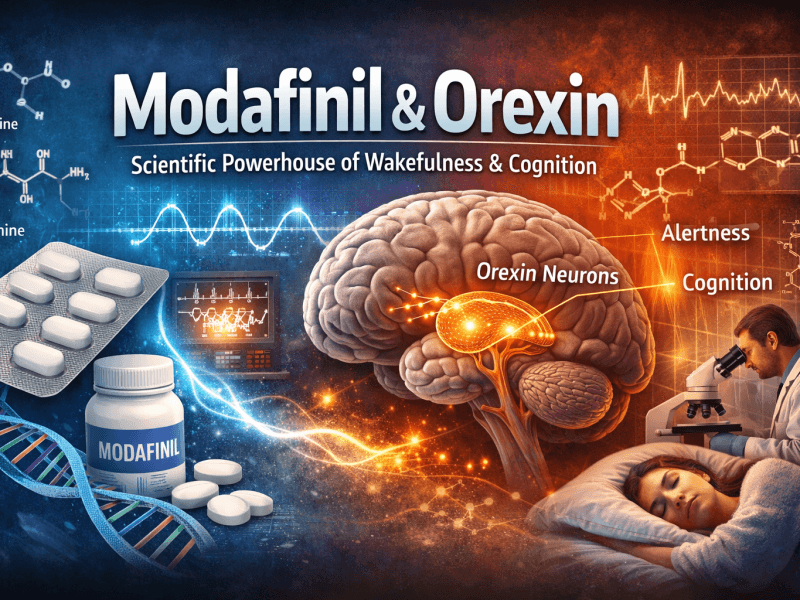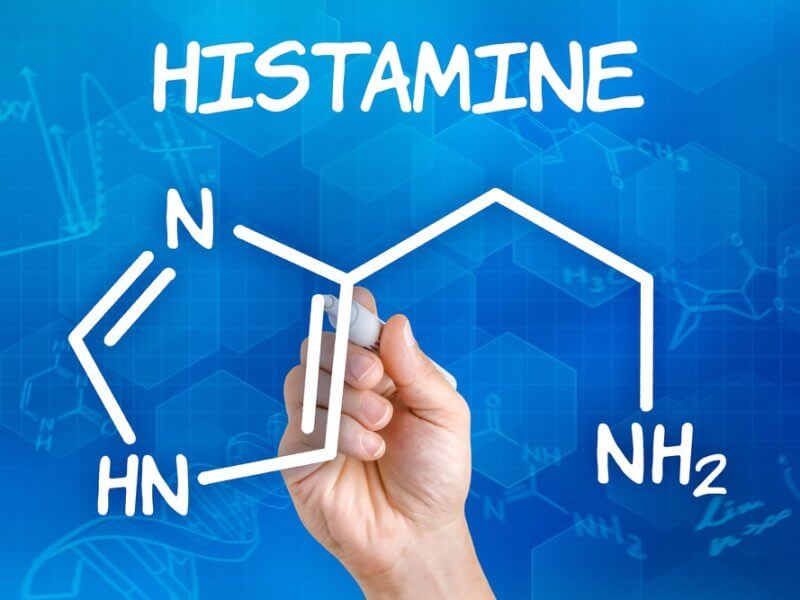Last Updated on 31/01/2026 by James Anderson
Post-Traumatic Stress Disorder (PTSD) remains a significant therapeutic challenge, characterized by a debilitating triad of hyperarousal, intrusive re-experiencing, and avoidance or numbing behaviors. While first-line treatments like selective serotonin reuptake inhibitors (SSRIs) and trauma-focused psychotherapy are effective for many, a substantial subset of patients experiences residual symptoms, particularly crippling fatigue and cognitive impairment.
This clinical review examines the evidence for modafinil, a unique wakefulness-promoting agent, as a potential adjunctive therapy in PTSD. We will explore its neurobiological mechanisms, synthesize findings from clinical trials, analyze its specific pros and cons for PTSD symptomatology, and place it within the broader context of evidence-based PTSD treatments.
Understanding the Core Symptoms and Rationale for Modafinil
PTSD-related symptoms can be broadly categorized, and modafinil’s pharmacology offers a theoretical benefit for specific clusters:
| PTSD Symptom Cluster | Typical Manifestations | Modafinil’s Potential Mechanism of Action |
|---|---|---|
| Hyperarousal & Hypervigilance | Sleep disturbances (insomnia, nightmares), irritability, exaggerated startle. | Modafinil’s strong wake-promoting effects can directly counteract the excessive daytime sleepiness (EDS) and cognitive “fog” that often accompany chronic hyperarousal, though its stimulating properties require careful management. |
| Negative Alterations in Cognition & Mood | Difficulty concentrating (“brain fog”), memory problems, anhedonia, emotional numbness. | By increasing prefrontal cortical dopamine and norepinephrine, modafinil may enhance executive functions (working memory, attention, cognitive flexibility), potentially cutting through the “fog” and improving motivation. |
| Intrusive Symptoms & Avoidance | Flashbacks, nightmares, active avoidance of trauma reminders. | Limited direct evidence. Modafinil is not believed to directly modulate fear extinction or emotional memory processing like first-line therapies. Its benefit here would be indirect (improving energy for therapy engagement). |
Neuropharmacological Action: Beyond Simple Stimulation
Modafinil’s distinction from classical stimulants (amphetamines) is key. It promotes wakefulness and cognition through a more selective and nuanced neurochemical profile:
- Dopamine Transporter (DAT) Inhibition: Its primary mechanism is blocking the reuptake of dopamine, elevating its levels in key brain regions like the prefrontal cortex. This is central to its pro-cognitive and potentially mood-brightening effects.
- Norepinephrine and Histamine Systems: Modafinil also increases norepinephrine (implicated in attention and stress response) and histamine (a primary wakefulness neurotransmitter). This broad activation of the brain’s “alertness matrix” underpins its ability to combat fatigue.
- Orexin/Hypocretin Activation: It stimulates the orexin system in the hypothalamus, a master regulator of the sleep/wake cycle and energy homeostasis. This action is particularly relevant for stabilizing erratic sleep-wake patterns common in PTSD.
Clinical Evidence: A Review of the Data
The body of research on modafinil for PTSD is promising but not yet definitive. Studies highlight its specific, rather than global, benefits:
- Targeted Symptom Relief: Multiple studies, particularly in veteran populations, have shown that modafinil (at doses of 100-200 mg/day) is effective at reducing excessive daytime sleepiness, fatigue, and improving measures of cognitive function such as sustained attention and working memory.
- Adjunctive, Not Monotherapy: The evidence does not support modafinil as a standalone PTSD treatment. Clinical trials, including randomized controlled studies, have generally not found a significant reduction in core PTSD symptoms (CAPS or PCL scores) when used alone. Its role is adjunctive, aimed at alleviating specific debilitating residuals that hinder overall recovery.
- Facilitating Psychotherapy: A compelling hypothesis is that by alleviating fatigue and sharpening cognition, modafinil may enhance a patient’s ability to fully engage in and benefit from trauma-focused psychotherapies like Prolonged Exposure (PE) or Cognitive Processing Therapy (CPT). This synergistic effect requires more rigorous study.
Comparative Analysis: Modafinil vs. Standard PTSD Pharmacotherapies
Placing modafinil in context with established medications clarifies its niche.
| Medication Class (Examples) | Primary Target in PTSD | Key Advantages | Key Limitations | Role of Modafinil |
|---|---|---|---|---|
| SSRIs/SNRIs (Sertraline, Paroxetine, Venlafaxine) | Core mood/anxiety symptoms, intrusions. | FDA-approved; good evidence base for core symptoms. | Slow onset (4-8 weeks); side effects (GI, sexual dysfunction); may not help cognition/fatigue. | Adjunct for residual fatigue/cognition. |
| Alpha-1 Adrenergic Antagonists (Prazosin) | Trauma-related nightmares & sleep disruption. | Highly effective for nocturnal symptoms; rapid effect. | Does not address daytime EDS or cognitive deficits. | Complementary for daytime symptoms. |
| Atypical Antipsychotics (Risperidone, Quetiapine) | Severe hyperarousal, aggression, dissociation (2nd-line). | Can treat severe, refractory symptoms. | Metabolic side effects; sedation; not for core PTSD. | Not typically combined due to opposing sedative/activating effects. |
| Benzodiazepines (Alprazolam, Clonazepam) | Acute anxiety/panic (NOT recommended for PTSD). | Rapid anxiolysis. | High risk of dependence; worsen PTSD outcomes; impair memory. | Contraindicated to combine. |
Practical Considerations: Safety, Dosing, and Cautions
If considered under specialist supervision, the following protocol is prudent:
- Dosing: Start low (50-100 mg) as a single morning dose to minimize insomnia risk. Effective dose typically ranges from 100-200 mg/day.
- Side Effects: Common include headache, nausea, nervousness, and insomnia. Serious but rare risks include severe dermatologic reactions (SJS) and cardiovascular effects.
- Critical Interactions: Modafinil is a moderate inducer of CYP3A4 liver enzymes. It can significantly reduce the plasma concentration and effectiveness of many drugs, including:
- SSRI Antidepressants (sertraline, citalopram)
- Benzodiazepines
- Some antipsychotics
- Oral Contraceptives (can reduce efficacy, requiring backup methods)
- Contraindications: History of psychosis, cardiac issues, or hypersensitivity.
Conclusion and Future Directions
Modafinil represents a rational and evidence-informed adjunctive option for a specific subset of PTSD symptoms namely, treatment-resistant fatigue and cognitive dysfunction. It is not a primary treatment for the core trauma pathology.
Its intelligent use lies in targeting these residual symptoms to remove a critical barrier to functioning and engagement in first-line psychotherapies. Future research must focus on well-designed trials testing modafinil in combination with trauma-focused therapy, identifying biomarkers (genetic profiles related to dopamine or orexin) that predict positive response, and establishing long-term safety and efficacy data.
For clinicians and patients, modafinil should be considered a potential tool in the toolkit, deployed with precision after standard treatments have been optimized, and always under the guidance of a psychiatrist specializing in trauma.
FAQ
Can modafinil replace my current SSRI or therapy for PTSD?
No, it cannot and should not. Modafinil does not have proven efficacy for the core emotional and intrusive symptoms of PTSD (flashbacks, avoidance, hypervigilance). Its role is strictly adjunctive. It may be added to an existing SSRI regimen or used to support psychotherapy by improving energy and focus, but it is not a substitute for these foundational treatments.
I have severe PTSD-related nightmares. Will modafinil help with those?
Modafinil is not the first-line treatment for nightmares. Its primary action is promoting daytime wakefulness and could potentially worsen nighttime sleep if dosed too late. The medication with the strongest evidence for reducing trauma-related nightmares is prazosin, an alpha-blocker. Modafinil and prazosin could theoretically be used in a complementary fashion (prazosin at night for nightmares, modafinil in the morning for daytime fatigue), but this must be managed carefully by a psychiatrist.
Is modafinil addictive for people with PTSD?
Modafinil has a significantly lower potential for abuse and dependence compared to traditional stimulants like amphetamines or methylphenidate. It is classified as a Schedule IV controlled substance in the U.S., indicating a low risk. However, individuals with a history of substance use disorders should use it with caution. Psychological dependence (relying on it to function) is possible, which is why it should be part of a comprehensive treatment plan, not the sole intervention.
‼️ Disclaimer: The information provided in this article about modafinil is intended for informational purposes only and is not a substitute for professional medical consultation or recommendations. The author of the article are not responsible for any errors, omissions, or actions based on the information provided.
References:
- Modafinil misuse and overdose. Reactions Weekly. 2022
- Alacam H. Modafinil dependence: A case with attention-deficit/hyperactivity disorder.
https://www.ncbi.nlm.nih.gov/pmc/articles/PMC5912487/ . 2018 - Arnold VK. A 9-week, randomized, double-blind, placebo-controlled, parallel-group, dose-finding study to evaluate the efficacy and safety of modafinil as treatment for adults with ADHD. 2012
- Clinical guideline for the evaluation, management and long-term care of obstructive sleep apnea in adults. 2009
- Cortese S. Comparative efficacy and tolerability of medications for attention-deficit hyperactivity disorder in children, adolescents, and adults. 2018
- Goss AJ. Modafinil augmentation therapy in unipolar and bipolar depression: Aa systematic review and meta-analysis of randomized controlled trials. 2013
- Krishnan R. A rare case of modafinil dependence. 2015
- Practice parameters for the treatment of narcolepsy and other hypersomnias of central origin. 2007
- Shangyan H. Meta-analysis of the efficacy of modafinil versus placebo in the treatment of multiple sclerosis fatigue. 2018
- Stuhec M. Efficacy, acceptability, and tolerability of lisdexamfetamine, mix amphetamine salts, methylphenidate, and modafinil in the treatment of attention-deficit hyperactivity disorder in adults. 2018
- Swapnajeet S. Modafinil dependence and hypersexuality: a case report and review of the evidence. 2018


